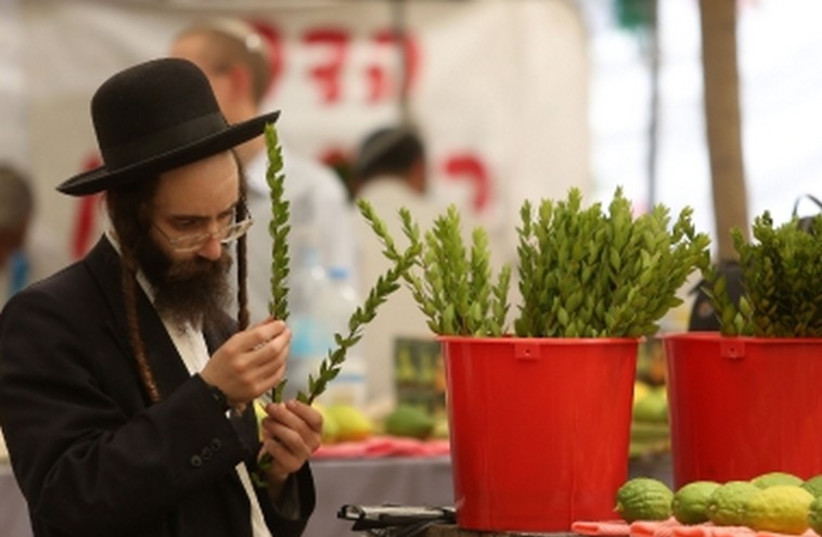We spend our way to the poorhouse. We buy giant TVs and iPads. Our children wear nice clothes thanks to high-interest credit cards and payday loans. We purchase homes we don’t need, refinance them for more spending money, and declare bankruptcy, often leaving them full of garbage in our wake. Thrift is inimical to our being. J. D. Vance
We are now in the middle of Sukkot. The High Holy Days are over. Hopefully we were successful in getting back to our core values. Due to surging corona numbers our synagogue decided that while services were allowed indoors, it would be best if we held them outside. It was truly amazing and emotionally uplifting and after Yom Kippur, many who I prayed with said that this was the most moving Yom Kippur they had experienced. We must have had 300-400 people on a little Jerusalem street. Keep in mind that in a normal non-corona year, we would have around 130 participants indoors. Religious and secular together on the street and sidewalks with no boundaries separating them, praying as the sun set and then waiting in anticipation for the shofar blow signaling the end of the day, was such a strong display of national unity so sorely lacking in our current situation. Many congregants and neighbors alike commented that regardless of the corona situation next year, we should hold services outside for Yom Kippur, because it was so unifying and powerful.

But enough about Yom Kippur, we are already halfway through Sukkot. As I have mentioned before, Rabbi Benjamin Blech describes the holiday and writes, “Sukkot was the time when, in the agricultural society of old, farmers found themselves the wealthiest they would be all year. It was the time of the harvest. The granaries were full.” He continues, “They needed to recall, in a festival appropriately named “the season of our joy,” that true happiness comes not from our possessions but from our priorities, not from what we own but from who we are, not from our mansions that offer physical comforts but from our families with whom we create everlasting bonds of love and affection.”
One of my favorite parts of the holiday season is that we get to spend lots of family time. All the kids are home at the same time, and even the most mundane activities become fun as they are all done together. A few nights ago, it was almost midnight and we were all sitting around and someone turned on the TV. We got to a show called “Say yes to the dress” and it was decided by majority (something not common in our home!) that this would be the show to watch. The premise of the show is that brides go with a few friends and family members to buy their dream wedding dress. It’s full of drama as inevitably someone in the party says something nasty about one of the dresses that’s tried on and then the bride gets all emotional, and you can figure out the rest. It usually ends well. On the episode I watched the bride was asked what her budget was and she replied that, “My daddy said the budget is $3,000 but it’s my wedding and I will spend whatever I want. If the dress costs $9,000 he will need to pay for it because that’s what I want.”
Needless to say I got really angry and I think my kids had a blast watching me watch the show. On so many levels this was a terrible message. I am surely guilty of having watched some inane TV over the years but this time I actually feel that 30 minutes of my life were totally wasted and I will never get them back!
It’s all about priorities. Don’t get me wrong. I’m not against creating wealth and trying to make money. After all my job is to grow wealth for clients. I have written here about these two famous stories. One is of Wal-Mart founder Sam Walton. On his death bed he said that he “blew it.” Here was a billionaire who created this amazing company, but as he was dying he realized that he didn’t spend nearly enough time with his family.
The second story is about Chuck Feeny, co-founder of retail giant Duty Free Shoppers. Feeny spent 38 years giving away to charity his entire fortune of billions of dollars. Years ago he set aside $2 million for his and his wife’s retirement and started giving the rest away to charity. Last year he finished!
Let’s use the rest of this holiday to focus on using our money for things that we truly need. It was just a few days ago that we were all able to pray together. Corona has left many hurting financially. Maybe we should forgo some small luxury and help out those in need. Let’s remember the lesson of Rabbi Blech, “that true happiness comes not from our possessions but from our priorities.
Chag sameach.
Aaron Katsman is author of the book Retirement GPS: How to Navigate Your Way to A Secure Financial Future with Global Investing (McGraw-Hill), and is a licensed financial professional both in the United States and Israel, and helps people who open investment accounts in the United States. For more information, call (02) 624-0995 visit www.aaronkatsman.com or email aaron@lighthousecapital.co.il
